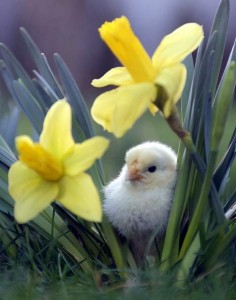
Desdemona and Emilia
Soprano aria (death song)1 from Verdi’s opera “Otello”
Tr. YK Chan 陈耀国译
柳之歌 (意) 阿里高.布意徒 譜词
芃尓第歌剧<奧赛罗>女高音咏叹调 (哀歌) 1
Son mesta tanto, tanto. 我觉得非常非常悲伤。
Mia madre aveva una povera ancella 我妈曾有亇贫窮的女僕
Innamorata e bella; 她衷情又漂亮;
Era il suo nome 她的名字是
Barbara. Amava 巴巴菈。她愛上
Un uom che poi l’abbandonò, cantava 一亇後來拋棄她的男人,她唱過
Una canone: la canzon del Salice. 一首歌:柳之歌。
[Mi disciogli le chiome] [把我的头发松散吧]
Io questa sera ho la memoria piena 今晚我記得很清楚
Di quella cantilena: 这首小曲:
“Piangea cantando “她边唱边哭泣,
Nell’erma landa, 在那荒地上,
Piangea la mesta. 那怨女在哭泣。
O Salce! Salce! Salce! 噢柳树! 柳树! 柳树!
Sedea chinando 她坐着俯首
Sul sen la testa! 於懷!
O Salce! Salce! Salce! 噢柳树!柳树! 柳树!
Cantiamo! Cantiamo! Il Salce funebre 让我们唱吧!我们唱吧!那喪殯般的柳树
Sarà la mia ghirlanda.” 将是我的花环”
[Affrettati; fra poce giunge Otello.] [快點吧;奧赛罗快來到啦!]
“Scorreano irivi fra le zolle in fior, “溪水流过种滿鲜花的大地,
Gemea quel core affranto, 那破裂的心呻吟着,
E dalle ciglia le sgorgava il cor 和她的心在眼底放了出來
L’amara onda del pianto, 是痛苦的淚潮,
Salce! Salce! Salce! 柳树! 柳树! 柳树!
Cantiamo! Cantiamo! 让我们唱吧!我们唱吧!
Il Salce fenebre sarà la mia ghirlanda. 那喪殯般的柳树将是我的花环。
Scendean gli augelli a vol dai rami cupi 鳥兒们从黑暗的树枝飛下來
Verso quel dolce canto. 朝着那甜蜜的歌声。
E gli occhi suoi piangean tanto, tanto, 她的眼睛也多多哭泣着,
Da impietosir le rupi.” 可帶动石头的哀憐。”
[Riponi quest’anello.] [你把这指環放到別处吧.]
Povera Barbara ! 可憐的巴巴菈!
Solea la storia 这個故事一般是
Con questo semplice suono finir 以此简单的調子完結的:
“Egli era nato per la sua gloria, 他是为他的榮耀而出生
Io per amar…” 而我是为愛情… ”
Ascola. Odo un lamento. 听着,我听到有呻吟声。
Taci. Chi batte a quella porta ?… 靜一下。誰在叩那门?…
_______________________
1 Sung by Renata Tebaldi:
http://www.youtube.com/watch?v=Z5UBUHTvvcY

